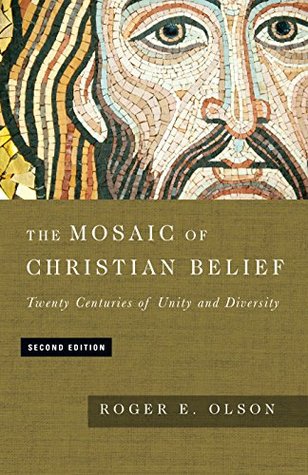More on this book
Kindle Notes & Highlights
Read between
August 9 - October 24, 2020
Suffice it to say here that Christians all together believe that salvation as reconciliation with God and inward renewal from the corruption of inherited depravity and toward the restoration of the image of God is wholly and completely a work of God’s grace while at the same time also an event and process involving human agency. That is, for Christians, salvation is both gift and task.
Miguel Cisneros Saucedo liked this
In other words, Reformed Protestants believe the church universal is not identical with any one denomination or national church but is invisible and spread throughout the world in many visible churches, denominations and sects. It consists of all the elect of God and is neither disconnected from visible congregations and denominations nor identical with any one of them. The invisible body of Christ is also visible in that it is manifested in many different gatherings of Christians, but the latter do not exhaust or confine the true church.
The church of Jesus Christ is one. There is only one true church, and it is the mystical body of Christ, the fellowship of all true believers in him throughout the world.
The church is holy. That is, the one true church of Jesus Christ spread throughout time and space is set apart to God by the Holy Spirit. In spite of the manifest flaws and faults of its leaders and its members, the church is God’s dwelling place on earth and has a unique call and destiny.
Christianity has always been a religion of hope; Christians have always agreed that for those who trust in God’s promise through Jesus Christ and who repent of their sins, death is not the end of life but the doorway into eternal life—a transformed, personal existence with God in heaven.
the resurrection will be corporeal and not merely “spiritual” and that the expectation of such holistic salvation—body, soul and spirit (Irenaeus embraced a trichotomous view of human persons)—is part and parcel of the blessed hope of Christians for their future redemption.
paradise, a restful oasis, is the term preferred for the state of souls that die in communion with Christ before he returns and opens heaven for them.
While paradise is the usual English term for the intermediate abode of the righteous souls who restfully wait for their future gathering together with Christ to enjoy heaven in their glorified bodies after the resurrection, there is no specific term for the opposite intermediate abode of the “reprobate,” as Calvin called those who die without being reconciled with God through Christ.
Christians need to realize that God’s revelation of the future is good news. It is not meant to frighten people with visions of their doom and destruction should they happen to miss some secret rapture event that comes like a thief in the night. Instead, we need to recapture the notes of great promise and high hopes that infuse the biblical message about the future. That message is, in a nutshell, God wins in the end.


